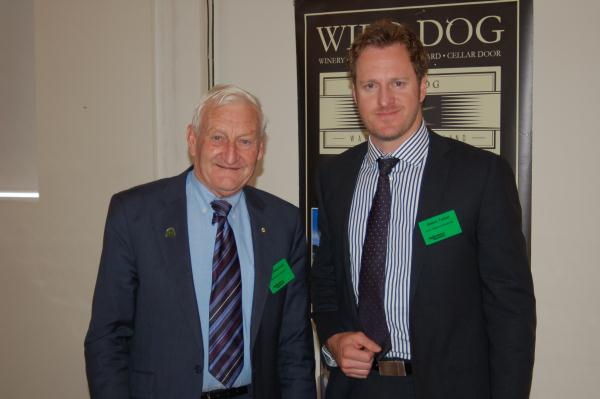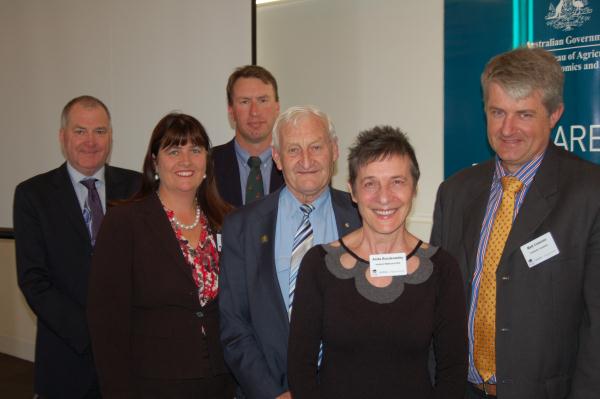By LACHLAN MOORHEAD
JOB creation, better transport of farm produce and increased co-operation between food producing districts could be among the benefits to flow from the South-East Melbourne Region Food Plan.
The plan was launched last week as part of the Gippsland Food and Farm Conference in Pakenham.
Chairman of Southern Melbourne Regional Development Australia (RDA) food plan committee Greg Hunt introduced the plan which he said would help ensure the future of farming in the region.
“We need to retain high value food production,” Mr Hunt said.
“We need to make sure Peninsula, Casey and Cardinia complement each other in the industry, they each have their advantages.”
Despite being positive about the future of food, Mr Hunt also warned that several of the industries were under threat from climate change and needed to be protected, including poultry, fruit, dairy and raw crops.
The Australian Bureau of Agricultural Resource Economics and Sciences (ABARES), along with Agribusiness Gippsland, organised two separate programs for the conference at the Cardinia Cultural Centre – Food4$ and Cardinia Regional Outlook.
Over two jam-packed days, a who’s who of primary producers, business people, consultants and politicians spoke at the conference about the current state and future of the Gippsland food and farm industries, in front of a mixed audience of farmers, students and councilmen.
Hastings MP Neale Burgess spoke extensively about the Gippsland food industry and the need for efficient importation and exportation through Victoria’s ports.
In addition to Port Melbourne, Mr Burgess believes Port Hastings holds the key to developing the food industry and stressed the need for both of them to be adequately resourced.
“Victoria is the logistics capital of Australia, by protecting Hastings we protect jobs,” he said.
“The expansion of Port of Melbourne will allow the Port of Hastings to also flourish and take over some of that business.”
The director of corporate affairs at Kraft Foods Australia Simon Talbot outlined ways in which the food industry can be re-invigorated.
“We need to progress from the mining boom,” Mr Talbot said.
“We have to start focusing on the dining boom.”
Mr Talbot highlighted how Victoria can improve its exportation to Asian countries through comprehensive market research and testing innovative new products in China, Indonesia and Singapore.
On the second day of the event, a panel of experts spoke in length about the regional outlook for Gippsland, focusing on the future of farming.
Chairman of Agribusiness Gippsland Alex Arbuthnot opened proceedings by emphasising Mr Talbot’s comments that despite the agriculture industry creating double the income of the mining industry, the latter still receives all the focus.
“Agriculture has been taken for granted,” Mr Arbuthnot said.
“And if we are going to double our production, we need foreign investment.”
Self-made farmer and Nuffield Australia scholar Romo Britnell agreed that the wider community paid little interest to farmers.
“We need people to understand the value of food. Farmers have the responsibility of food,” she said.
“We need an advocate for farmers.”
Another Nuffield scholar, Damian Murphy from Dumbalk, gave a similar insight into how he has made a living as a young farmer and called for more government funding to ensure other new farmers can succeed in the profession.
Closing out the session were Yannathan dairy farmer Matt Coleman and Cardinia Shire CEO Garry McQuillan.
Mr McQuillan discussed his petition for an independent water source that could keep farming land healthy, especially in the wake of many natural disasters.
“We need to protect our high quality land on the fringes of Melbourne,” he said.
“We need to think how we can create more rain independent agricultural land.”








